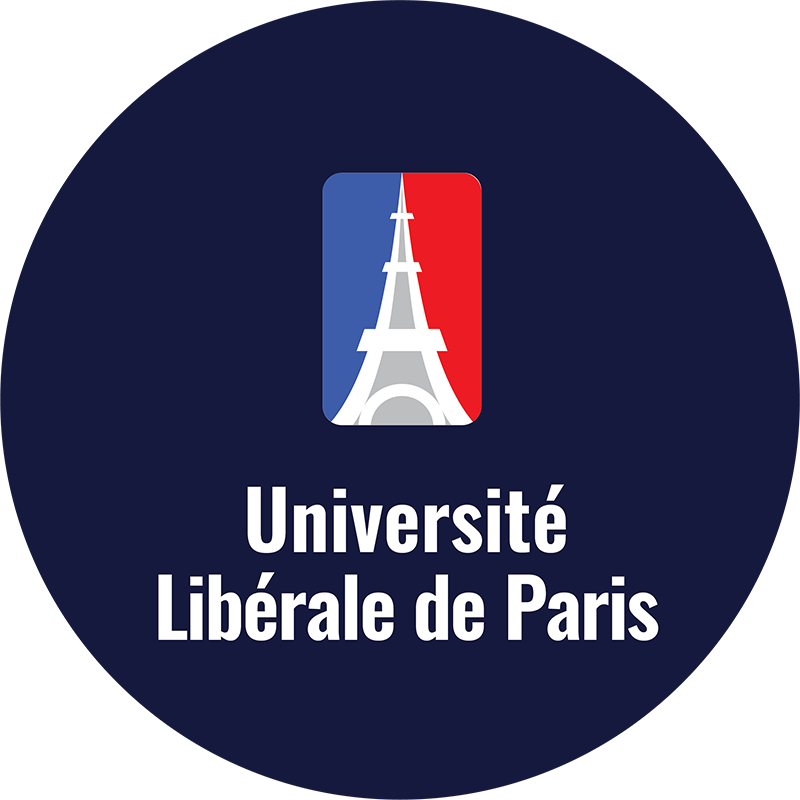
Micro Master’s Degree in Managing Effective Intercultural Communication and Perspectives
Micro Master's Degree in Managing Effective Intercultural Communication and Perspectives
Level 7 is equivalent to Master's level
This unit aims to develop learners’ understanding of the importance of managing intercultural communication and perspectives that help to determine educational policy applicable to national and international contexts.
Level 7 is equivalent to Master’s level and could transfer 20 credits and total tuition fees to Master programs of Paris-U.
Programs in details
Learning Outcomes:
1. Understand the issues and theoretical constructs surrounding intercultural communication and perspectives.
1.1 Explore how an increasingly globalised and connected world necessitates dynamic communication skills.
1.2 Assess how intercultural communication has become an essential aspect of applied linguistics.
1.3 Critically evaluate the implications this growth has for educators.
2. Understand how dimensions of culture can be barriers to effective communication.
2.1 Analyse the influences of culture on communication and perspectives.
2.2 Explain how barriers of stereotyping and ethnocentrism impede effective intercultural communication and perspectives.
2.3 Compare and contrast communication barriers between two national contexts.
2.4 Evaluate the cultural and social impact of barriers to communication in one national context.
3. Understand how to lead interaction in diverse cultural settings within academic contexts.
3.1 Define intercultural competence.
3.2 Self-assess own levels of ethnocentrism.
3.3 Examine our cultural assumptions and biases.
3.4 Summarise practical strategies to enhance one’s and others’ intercultural competence.
3.5 Explore utilising positive aspects of one’s cultural assumptions and biases to promote positive intercultural communication.
4. Understand the management of intercultural communication in education
4.1 Explore the notion of ‘culture shock’ about managing intercultural communication in education.
4.2 Examine what are acceptable behaviour and appropriate discourse within educational settings.
4.3 Analyse how to manage the challenges associated with adopting unfamiliar communication-focused pedagogies about learning.
4.4 Evaluate strategies for managing the disorientation and stress from unfamiliarity.
- Issues and theoretical constructs: meta/theoretical perspective, e.g. critical, interpretive, social science; research context, e.g. face, mediated; focus, e.g. intracultural, cross-cultural, intercultural; target cultural group.
- Approaches: methods/procedures to overcome particular communication challenges, e.g. those with learning difficulties, hearing impaired, visually impaired, English as a second language; use of feedback skills to facilitate communication and workplace.
- Relationships; persuasion and negotiation skills appropriate to different situations and people.
- Barriers to effective communication: Hall’s (1976) conception of high and low context cultures; Hofstede’s (2001) five dimensions of cultural values; avoidance and Confucian dynamism; relate to own cultural identities and backgrounds.
- Influences: cultural and religious beliefs, education, class structure, and educational social priorities.
- Interaction: stereotyping from a cognitive perspective; how stereotypes hamper face-to-face contact with others; own levels of ethnocentrism using Neuliep and McCroskey’s (1997) GENE scale.
- Implications: ‘Culture shock’ is seen as a period of adaptation to different styles and approaches used in education and training, the relevance of the communication cycle for effective communication, selecting an appropriate tone, language, and level of formality; sequenced delivery linked to assessment; skills development; integrated approach; e-learning; distance or blended approach; staffing; adapting language; recognising and addressing barriers; engaging learners in own communication.
Indicative Reading list
- Bhatia, V.K. (1993). Analysing genre: Language use in professional settings. London: Longman
- Bennett, M. J. (2013). Basic concepts of intercultural communication. Paradigms, principles and practices (2nd ed.). Boston: Intercultural Press Connor, U. (1996). Contrastive rhetoric. Cambridge: Cambridge University Press
- Connor, U., Nagelhout, E., & Rozycki, W. (Eds.). (2008). Contrastive rhetoric: Reaching to intercultural rhetoric. Amsterdam: John Benjamins Hyland, K. (2004). Genre and second language writing. Ann Arbor, MI: University of Michigan Press
- Jandt, F. E. (2009). An introduction to intercultural communication: Identities in a global community (5th ed.). Thousand Oaks: Sage Neuliep, J. W. (2014). Intercultural communication: A contextual approach (6th ed.). Thousand Oaks. CA: Sage
- Samovar, L. A., & Porter, R. E. (Eds.). (2003). Intercultural communication: A reader (10th ed.). Belmont, CA: Thomson Wadsworth Swales, J. (2008). Research genres: Explorations and applications. Cambridge: CUP
Website Links
- www.Dylanwiliam.net (Dylan Wiliam, professional development materials)
- www.crll.org.uk (Centre for Research in Lifelong Learning)
- www.excellencegateway.org.uk (Excellence Gateway)
- www.infed.org (Informal education)
- www.geoffpetty.com (Geoff Petty, on-line teaching resources)
- www.ofsted.gov.uk (Office for Standards in Education)
- https://set.et-foundation.co.uk/ (Society for Education and Training)
Entry requirements
To enroll in the Micro Master program, the learner must possess:
- Graduated with a Bachelor’s degree from an accredited university or achieved a Level 6 Diploma according to the European Qualifications
- For a non-global accredited university degree, The learner should have followed the Accreditation of Prior Experimental Learning for Qualification (APELQ) policy of Université Libérale de Paris (Paris-U).
- Learners must be over 21 years old.
Université Libérale de Paris reserves the highest decision-making power for admission whether to accept or not accept after a specific review of each candidate’s profile to ensure they can comprehend and gain benefits when participating. For the fake university or diploma mills, SIMI shall not be accepted.
English language requirements
Proof of English proficiency must be provided if a learner is not from a predominantly English-speaking country.
- Common European Framework of Reference (CEFR) level B2 or equivalent
- Or A minimum TOEFL score of 101 or IELTS 6.5; Reading and Writing must be at 6.5 or equivalent
After graduating from Micro Master programs, students receive all certified documents from Université Libérale de Paris.
Certified Documents:
- e-Certificate from Université Libérale de Paris.
- Hard copy certificate from Université Libérale de Paris
- Accreditation of Prior Experiential Learning for Qualification (APELQ) certified from Paris-U for credit and tuition fee transfer
- Certification & Recognition certified from Paris-U
Because the program is accredited and recognized, students can easily use permitted in the working environment and have many opportunities for career advancement. In addition, if you want to study for a university degree, students can convert all credits and the full tuition fee when participating in the program Paris-U.
Université Libérale de Paris’s Micro Master Degree means:
Paris-U Micro Master Degree is certified at the master level and is equivalent to:
- Level 7 Certificate of Regulated Qualification Framework (RQF) of the UK
- Level 10 certificate of Scottish Credit and Qualifications Framework (SCQF)
- Level 7 Certificate of Credit and Qualifications Framework (CQFW)
- Level 7 certificate of European Qualifications Framework (EQF)
- Level 9 certificates of the Australian Qualifications Framework (AQF)
- Level 7 certificate of ASEAN Qualifications Reference Framework (AQRF)
- Level 9 certificate of the African Continental Qualifications Framework (ACQF)
Students can convert all credits and the full tuition fee when participating in the Paris-U academic programs if they want to study for an academic degree.
Credits transfer:
Learners can accumulate 20 credits from the Micro Master program when participating in the Master of Arts in Education Management and Innovation Pedagogy (MAEMIP) of Paris-U. Please see the credit transfer policy HERE.
Tuition fee transfer:
When participating in the MAEMIP program, students who have graduated from the Micro Master program will receive a discount equivalent with short courses tuition fee for each certified. Please see the tuition fee transfer HERE.
[APEL.Q] – Accreditation of Prior Experiential Learning (APEL) for Award of Academic Qualifications (Q) is the award of academic qualifications to individual learners through the evaluation and assessment of prior experiential learning towards fully accredited programmes offered by Paris-U. A degree with [APEL.Q] pathway is granted based on the knowledge, skills, and competencies acquired through formal, informal, or non-formal learning.
As a crucial component of Liberal Education, Paris-U is the first university in the world to fully implement the APEL.Q approach to acknowledge experience and knowledge. Assist students in becoming rapidly recognised and entering the labor market.
Short Courses Certified programs are wholly approved and recognised, according to the same rigorous standards as academic degree programs. Learners might include this qualification in their portfolios when submitting for the APEL.Q examination.
Please note that the APEL.Q process will lead to only the MAEMIP degree of Paris-U, not a dual degree. For more information, read more HERE
Université Libérale de Paris (Paris-U) Certified program is not-for-profit, so the tuition fees are fully supported by Paris-U’s partners. Université Libérale de Paris reserves the right not to accept more students if the number exceeds the quotas.
Apply Policy:
- To participate in Paris-U’s Short courses program, students need to meet the entry criteria corresponding to each level. Please see the “Entry” tab for more details.
- Paris-U will only accept applicants if their entry qualifications are from diploma mill universities or schools/universities that are accredited.
- For Level 7 short courses programs, if an entry bachelor is unavailable, students must demonstrate a minimum of 5 years of work experience in the relevant field. Please note that a bachelor’s degree is required for the Master’s program at Paris-U, so you could take the Micro Master program but could not move to the Master’s program at Paris-U.
- English is not a mandatory entry requirement for short course programs, but candidates must ensure that English is used in reading documents, listening to lectures, and doing assignments. Candidates should note that English is mandatory when switching to an academic program at Paris-U.
Apply Process:
- Choose the program that suits your requirements. Note that applicants without a university degree will not be able to participate in the program at Level 7, and applicants without a Master’s degree will not be able to participate in the program at Level 8.
- Email your application to support@paris-u.fr with all the required documents. You could download the application form here.
- Our admission department will reach out to you and guide you through further processes if the registration documents need to be supplemented.
- Université Libérale de Paris will issue the Letter of Acceptant (LOA). You will proceed to the next steps according to the instructions and pay the tuition fee.
- Université Libérale de Paris will issue a student confirmation letter, login account to the e-learning system and related documents.
- You have become an official Paris-U student and enjoy your study journey.
The Short Courses Certified program is a fully online program. You can study anytime, anywhere. The final exam will be uploaded to the system and marked by the academic panel of Paris-U. Students must submit assignments on time. Otherwise, the student is considered not to continue the program.


Tuition fees
Tuition policies are in keeping with the provisions of the Paris-U policy and are subject to change without notice. In some cases, Paris-U offers a variety of Scholarships for International Students.
Université Libérale de Paris
Université Libérale de Paris (Paris-U) offers higher education programmes in English only and that are different from the French National Curricula and Programmes leading to French Government accredited university qualifications, which falls under the French Public Higher Education sector.
The world’s first liberal arts university for post-graduates
1 Rue de Stockholm • 75008 Paris, France
Phone: +33758491227
Email: support@paris-u.fr
A member of the European Education Holdings
Wertachstrasse 21 • 86153 Augsburg, Germany
Phone: +15908605264
Email: support@education.holdings
About Paris-U
Programs
Paris-U members
Paris-U systems
Paris-U policies
Clauses of Use
Acceptable Use
Intellectual Property and Trademarks
Ethics Code
Student Policies
Refunds

